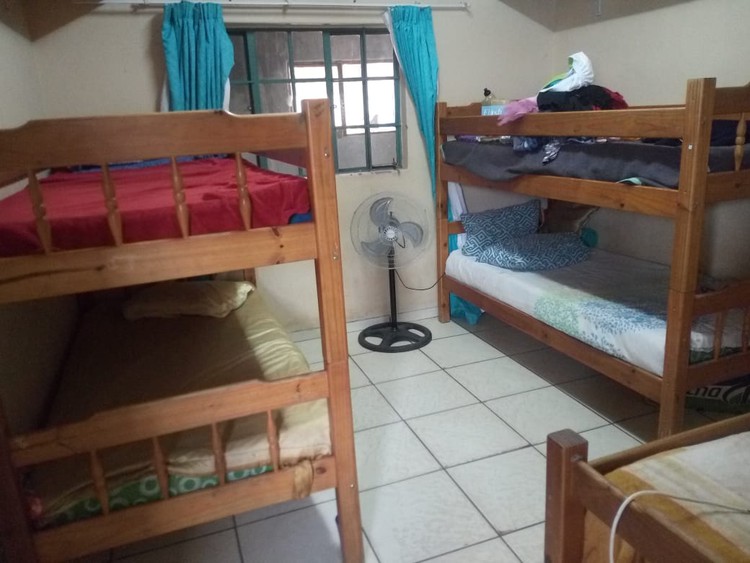Children’s shelter faces closure after department stops funding
“We have no option but to go out in the streets begging” says a 20-year-old living at the shelter
One of the dorms for girls at the Nancefield shelter run by the Christian Women Ministries in Musina, Limpopo. About 41 children who live in this and another shelter could be out on the streets soon if the owner is unable to secure funding. Photo: Bernard Chiguvare
- About 41 children living at shelters in Musina, Limpopo could be out on the streets soon if the owner is unable to secure funding.
- The shelters were started by the Christian Women Ministries in 2008 to look after unaccompanied minors on the streets of Musina.
- The Department of Social Development stopped funding the shelters in December 2019 when its registration expired and due to “the state of the shelter”.
About 41 children living at shelters run by the Christian Women Ministries (CWM) in Musina, Limpopo, could be out on the streets soon if the owner is unable to secure funding.
The shelter’s director, Jacob Matakanye, says they have been battling to keep their heads above water and feed the children since the Department of Social Development stopped funding CWM in December 2019. Since then, the shelter has relied on donations from individuals to survive.
Limpopo Department of Social Development spokesperson Witness Tiva told GroundUp that the department had stopped funding the shelter because “the state of the shelter did not meet the full registration requirements”. Tiva said the shelter should have renewed its registration 90 days before the existing certificate expired more than a year ago.
But Matakanye blames the department for not releasing funds timeously so it could upgrade and maintain the shelters
CWM set up the shelters in 2008 to help unaccompanied minors on the streets of Musina. There is one shelter in Nancefield for girls and one in Matswale for boys.
The Matswale shelter currently cares for 23 boys while Nancefield has 18 girls. The girls sleep on bunk beds neatly arranged in rooms. There are showers and toilets. The washing machine, stove and refrigerator have been disconnected to reduce electricity costs.
A 19-year-old boy who lives at the Matswale shelter said, “We are really appealing to the department to fund the shelter because it is very difficult for us as learners. At times when the shelter finds it difficult to provide food we have to do casual jobs so that we buy food.” He has been in South Africa since 2016 and is now in grade 11. He hopes one day to get a university degree.
A 20-year-old girl from Zimbabwe who arrived in 2009 said: “All was going well up to 2018. Life is now difficult for us. At times the shelter is struggling to supply us with food. We have no option but to go out on the streets begging. I feel for the younger children because they cannot source food for themselves. At times we share with them whatever we get,” she said.
Matakanye said they were pleading for assistance and for the department to review its decision to halt their funding. “Looking after any child in the country is the department’s responsibility. Now they decided to punish our spirit of Ubuntu. We are calling on DSD to revive the funding,” he said.
The shelter is currently in the middle of an unrelated court battle with the department over the possible deportation of some of the undocumented children at the shelter. The department said it would not comment due to the court process underway.
Support independent journalism
Donate using Payfast

Don't miss out on the latest news
We respect your privacy, and promise we won't spam you.
© 2021 GroundUp. This article is licensed under a Creative Commons Attribution-NoDerivatives 4.0 International License.
You may republish this article, so long as you credit the authors and GroundUp, and do not change the text. Please include a link back to the original article.
We put an invisible pixel in the article so that we can count traffic to republishers. All analytics tools are solely on our servers. We do not give our logs to any third party. Logs are deleted after two weeks. We do not use any IP address identifying information except to count regional traffic. We are solely interested in counting hits, not tracking users. If you republish, please do not delete the invisible pixel.

